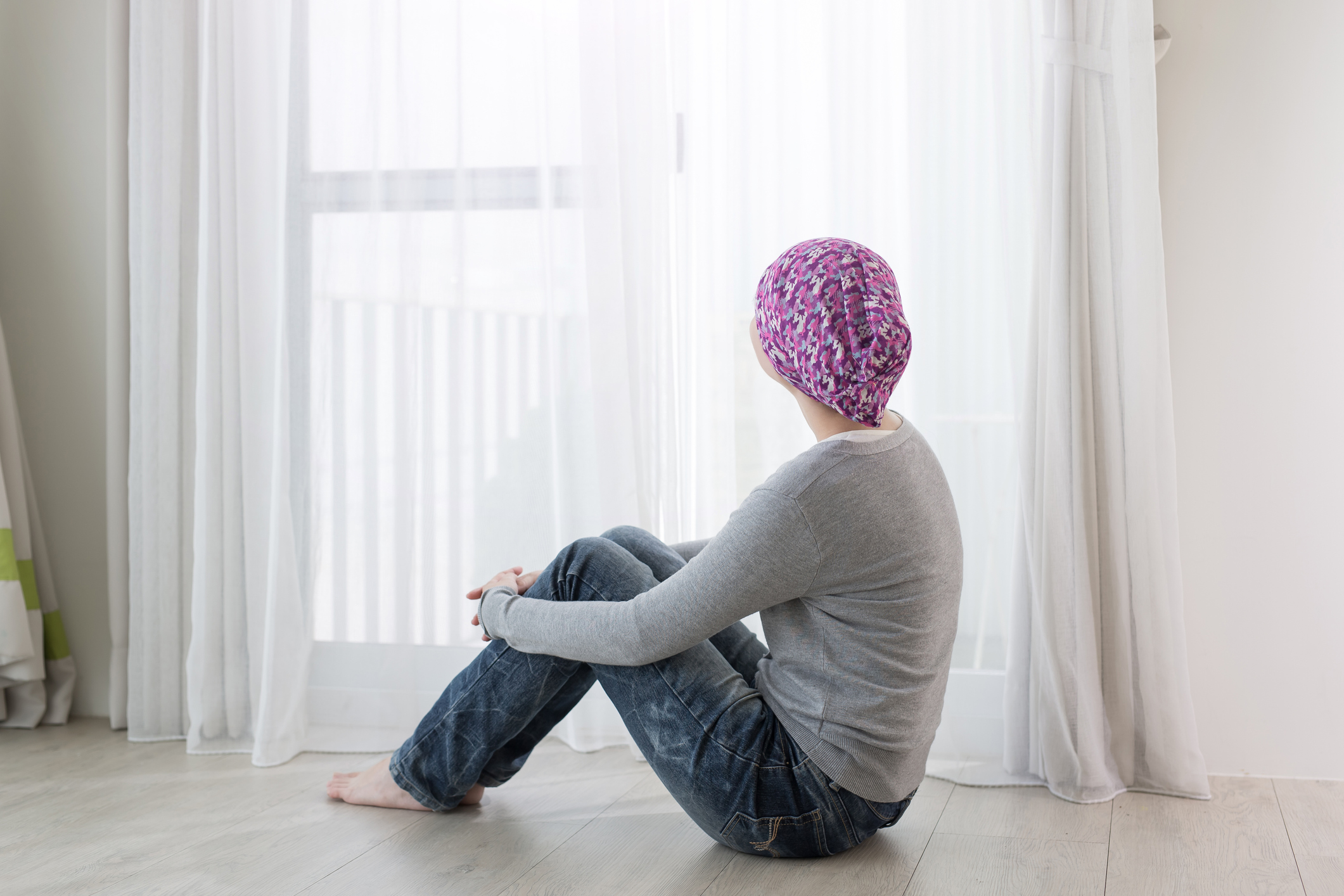Get Easy Health Digest™ in your inbox and don’t miss a thing when you subscribe today. Plus, get the free bonus report, Mother Nature’s Tips, Tricks and Remedies for Cholesterol, Blood Pressure & Blood Sugar as my way of saying welcome to the community!
Keeping cancer patients safe during COVID-19

Statistics say it’s likely every one of us knows a cancer patient. Maybe it’s a family member or a friend… or maybe you’ve been through or are going through treatments yourself.
For people with cancer, navigating the landscape of the COVID-19 pandemic holds unique challenges.
During this time, many hospitals are modifying or even suspending treatment for cancer patients to keep them away from hospitals where they would run the risk of being exposed to the coronavirus.
People who are undergoing cancer treatment are especially vulnerable to the virus. And even patients who’ve completed treatment may still be at high risk of a serious or even fatal COVID-19 infection.
Dr. Jeremy Warner, a Vanderbilt University data scientist who led a study that showed just how vulnerable cancer patients and survivors truly are, put it this way:
“If they don’t have COVID-19, they want to do anything they can to avoid getting it.”
COVID-19 death rate higher for those with cancer
Recent studies, including the one led by Dr. Warner, have found that cancer patients who developed COVID-19 were much more likely to die within a month than people without cancer who got the virus.
In Dr. Warner’s study, half of 928 current and former cancer patients with COVID-19 were hospitalized and 13 percent died. These numbers are higher than the rates reported in the general population.
A British study involving 800 patients with both cancer and COVID-19 found a death rate of 28 percent. The risk rose with age and other health problems such as high blood pressure.
And doctors at Montefiore Medical Center in New York City found that of 218 coronavirus patients who also had cancer, about one in four patients died.
A compromised immune system
The reason that people with both diseases don’t fare well comes down to the effect that both cancer and cancer treatment can have on the immune system.
Cancer itself can interfere with the body’s immune response. Some cancers change the way the immune system’s blood cells work, while others do direct damage to the body’s tissues, making them an easy target for infection.
And then there’s the treatment.
Dr. Eric Winer, an oncologist at Dana-Farber Cancer Institute in Boston, explains that chemotherapy and radiation lower the number of white blood cells in the body, thus weakening the immune system.
Dr. Winer also says that the risk is highest for those who are currently receiving treatment and for those whose treatment has recently ended.
The cancer treatment that carries the highest risk
After cancer treatment ends, the immune system usually recovers. But the degree of recovery can vary widely from person to person.
And if you’ve undergone a bone marrow transplant, you’re at even greater risk than other cancer patients.
“When you have a bone marrow transplant, you’ve been given a brand-new immune system, which must learn how to fight off infections all over again,” says Dr. Nicole Karras of City of Hope, a National Cancer Institute-designated comprehensive cancer center.
“On top of that, you must take medications that further suppress the immune system so that it won’t reject the transplant.”
Keeping cancer patients safe during COVID-19
The best way to protect vulnerable members of our communities from COVID-19 is to practice safe social distancing habits, wear masks and stay at home if possible. Visits with family members undergoing or just finishing cancer treatment should be avoided.
How can cancer patients protect themselves from COVID-19?
By following the same medical guidelines and precautions being recommended for everyone else.
- Wash hands often with soap and water for 20 seconds or more
- If soap and water are not available, use hand sanitizer with at least 60 percent alcohol
- Avoid touching your eyes, nose or mouth
- Avoid contact with people, especially those who are sick
- Cover your mouth and nose with a tissue when coughing or sneezing, and then discard the tissue
- Clean and disinfect frequently touched objects and surfaces using a regular household cleaning spray or wipe
- Exercise appropriate social distancing
If you have undergone any sort of cancer treatment in the past year, you should talk to your doctor or oncologist to assess your personal level of risk for COVID-19 complications.
Editor’s note: The many causes of cancer are stealth, so don’t sit idly by waiting for it to happen. Explore natural ways to cut your cancer risk, including the best minerals, herbs, supplements, foods and proven therapies allowed in other countries — but denied to you by American mainstream medicine — all in his comprehensive cancer guide, Surviving Cancer! To get your copy today, plus 3 FREE reports, click here!
Sources:
Cancer, coronavirus are a dangerous mix, new studies find — NBC
Case Fatality Rate of Cancer Patients with COVID-19 in a New York Hospital System — Cancer Discovery
Special coronavirus concerns for bone marrow transplant patients — City of Hope
The Coronavirus and Cancer: What You Need to Know Now — AARP
Why People with Cancer are More Likely to Get Infections — Cancer.org












